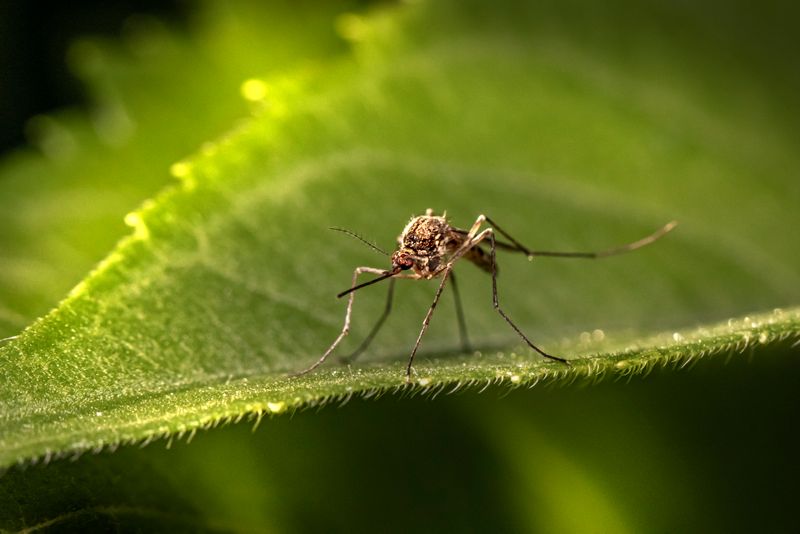Report: Dengue Fever Cases on the Rise in Florida
Introduction
Florida health officials have raised an alert about a surge in cases of dengue fever in the state, with the number of locally acquired cases increasing. Dengue fever is a viral illness transmitted through mosquito bites and can cause a range of symptoms, from mild to severe. While cases of dengue in the United States are typically found among individuals who have traveled to regions where the virus is prevalent, local transmission can occur when infected individuals return and are bitten by local mosquitoes. This report will examine the current situation in Florida, provide information on dengue fever, its symptoms, and how to prevent its spread.
The Rise in Dengue Cases in Florida
According to a surveillance report by the Florida Department of Health, there have been a total of 10 locally acquired cases of dengue fever in Broward County, including Fort Lauderdale, so far this year. Additionally, eight cases have been confirmed in Miami-Dade County. These figures are higher than usual and have prompted health officials to issue a warning to raise awareness among the public.
About Dengue Fever
Dengue fever is caused by four related viruses, which means individuals can be infected multiple times over their lifetime. The Centers for Disease Control and Prevention (CDC) estimates that approximately half of the world’s population lives in areas where there is a risk of dengue fever due to the presence of the virus in local mosquito populations. Popular tourist destinations in the Caribbean, Central and South America, Southeast Asia, and the Pacific islands are particularly susceptible to dengue outbreaks.
Symptoms of Dengue Fever
The symptoms of dengue fever can vary in severity. Common symptoms include muscle or joint pain, eye pain, nausea, vomiting, and rash. Most individuals recover within a week without complications. However, in some cases, severe complications may develop a day or two after the fever subsides.
Warning Signs
It is important to be aware of warning signs that may indicate a severe case of dengue fever. These signs include belly pain or tenderness, repeated vomiting, nose or gum bleeding, vomiting blood, blood in the stool, or persistent fatigue, restlessness, or irritability. The CDC advises that approximately 1 in 20 people infected with dengue develop severe symptoms and should seek medical care at a hospital or other healthcare facility.
Risk Factors
Certain groups, such as infants, pregnant women, and individuals with a history of dengue infection, are at a higher risk of developing severe dengue. It is crucial for these individuals to monitor their symptoms closely and seek medical attention promptly if any warning signs appear.
Prevention Strategies
Since dengue fever is primarily spread through infected Aedes mosquitoes, the best approach to prevention is to avoid mosquito bites. Individuals can employ several strategies to protect themselves:
1. Use insect repellent: Apply a mosquito repellent containing DEET to exposed skin and clothing. This can act as a deterrent against mosquito bites.
2. Stay in screened or air-conditioned areas: If possible, seek refuge in areas with screens or air conditioning, as mosquitoes are less likely to enter these environments.
3. Wear protective clothing: Cover exposed skin by wearing long sleeves, long pants, socks, and closed-toe shoes, especially during peak mosquito activity periods.
4. Eliminate mosquito breeding sites: Mosquitoes breed in standing water, so regularly empty and clean containers that can collect water, such as flower pots, birdbaths, and pet dishes. Additionally, ensure that gutters and drains are clear from debris to prevent water accumulation.
5. Community efforts: Communities can work together to reduce mosquito populations by organizing clean-up activities and promoting proper waste disposal.
Conclusion
With the rise in dengue fever cases in Florida, it is crucial for individuals to be aware of the symptoms, risk factors, and prevention strategies associated with the virus. Public health officials should continue to monitor and report on the situation, while the general public should remain vigilant in taking preventive measures to minimize the spread of dengue fever. By adopting precautionary measures and working collaboratively, Florida and other regions can minimize the impact of dengue fever outbreaks and protect their populations from this potentially serious illness.

<< photo by Erik Karits >>
The image is for illustrative purposes only and does not depict the actual situation.




